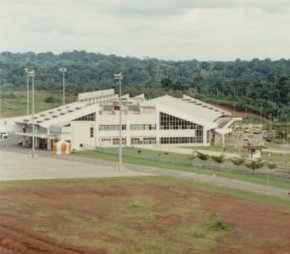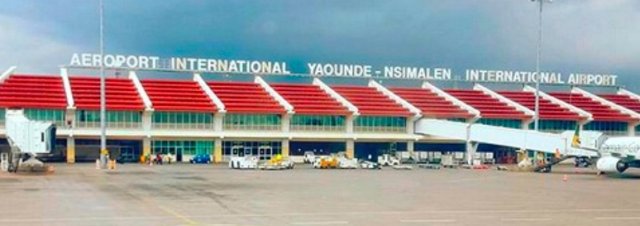|
Yaoundé Airport |
Yaoundé Airport |
Yaoundé Airport | Yaoundé Airport |
For information, videos and photos about the African nation of Cameroon, check out our profile pages.
More >
 |

The airport also employs modern air traffic control systems and navigation aids to ensure safe and efficient flight operations. Yaoundé Airport serves as a key gateway for numerous international and domestic airlines, connecting Cameroon to major cities across Africa and Europe. Prominent international carriers operating out of NSI include:
The significance of Yaoundé Nsimalen International Airport extends far beyond its operational statistics. As the airport serving the capital city, it is indispensable for diplomatic activities, facilitating the movement of government officials, foreign dignitaries, and international organisations. It is the primary point of entry for officials attending high-level meetings, conferences, and state visits, underscoring its strategic importance to Cameroon's foreign policy and international relations. Economically, the airport is a catalyst for growth. It boosts tourism by providing direct access to Cameroon's diverse cultural and natural attractions, from its bustling urban centres to its national parks and rich ecotourism potential. Business travellers rely on NSI for efficient access to the capital, driving foreign investment and trade. The cargo facilities support various industries by enabling the swift transport of high-value goods, perishable items, and essential supplies. In essence, NSI is not just a point of transit but an engine of socio-economic development for the entire country. Like many airports in rapidly developing regions, Yaoundé Nsimalen International Airport faces both opportunities and challenges. Maintaining its infrastructure to international standards, managing increasing passenger traffic, and continuing to enhance the passenger experience are ongoing priorities. Competition from larger, more established regional hubs also necessitates continuous improvement and strategic planning to attract more airlines and expand its route network. However, the future also holds considerable promise. As Cameroon continues its development trajectory, NSI is poised to play an even greater role. Potential opportunities include attracting new intercontinental routes, particularly from Asia and North America, expanding its cargo handling capabilities to support the growth of e-commerce, and further integrating ground transportation links to improve accessibility for travellers. Continued investment in modernisation and service quality will be key to realising its full potential. In the video make a virtual landing at Cameroon's Yaoundé Nsimalen International Airport and take in Cameroon from the air and you approach the runway. After you've watched the video why not check out and explore Yaoundé itself in another of our other Cameroon profile pages? |







